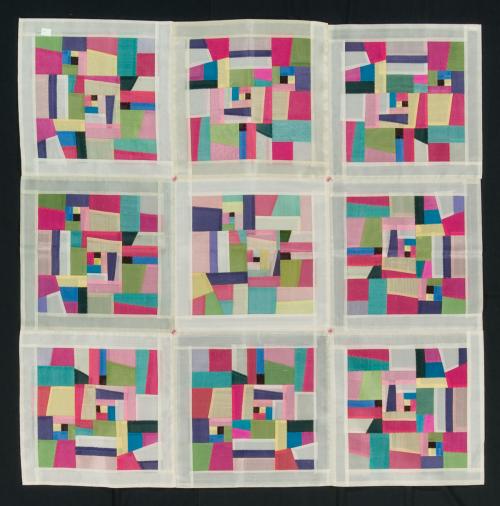
There is a centuries-old tradition in many cultures, particularly in Asia, of wrapping objects with beautiful textiles. In Korean culture, these wrappings, called pojagi, are made in bursts of colorful patchwork or imaginative embroidery, in fine and coarse materials, and from small to large scale. Pojagi cloths have many uses. They serve to cover, wrap, store, and carry objects in the common activities of daily life. They are made as tablecloths, to cover food, to wrap wedding gifts, to carry possessions on a journey, and to adorn and protect sacred writings. The irregularly shaped patches that comprise pojagi echo the nonuniform pieces of Crazy quilts.